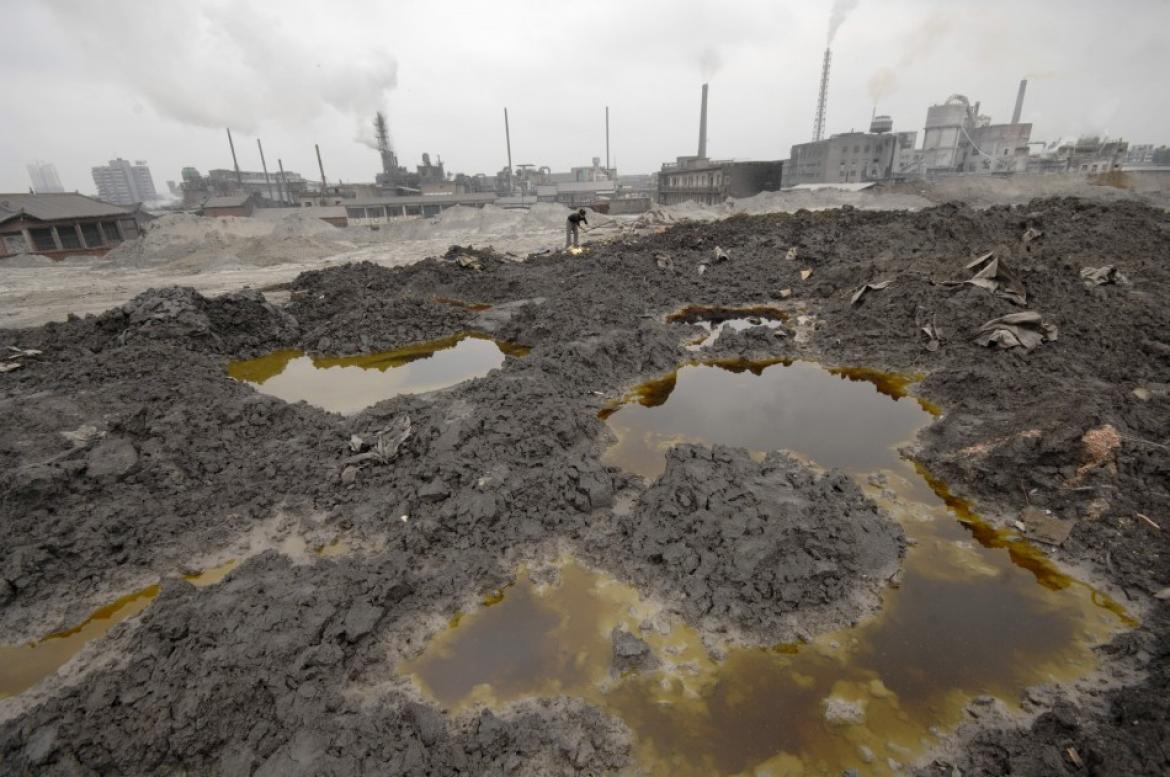MAO'S VIEWS ON NATURE
German Edition Klicken Sie hier für Deutsch
INTELLECTUAL ORIGINS OF CHINA'S MODERN ENVIRONMENTAL HORRORS

“Mao often proclaimed his prediction that humans could force nature into obedience. In May 1958, he commented, “Make the high mountain bow its head; make the river yield its way.’ It is an excellent sentence. When we ask the high mountain to bow its head, it has to do so! When we ask the river to yield the way, it must yield!”[1] In November, he remarked, “We have always maintained that we must give {Taiwan} serious attention tactically but regard it with contempt in the class struggle.[2] Similarly, in a critique of an essay by Stalin stating that men could not affect astronomy, geology, and other natural processes, Mao argued, “This argument is incorrect. Man’s ability to know and change Nature is unlimited.”[3] His acolytes apparently admired him for this: General Yang Shangkun is said to have boasted, “No other world leader looks down with such disdain on great mountains and powerful rivers.”[4]
Today, China is one of the world's worst environmental disasters. They are the largest emitter of carbon dioxide. 28,000 Rivers have disappeared. And some of the cities have so much smog that people have to wear masks outside. This legacy started under the rule of Chairman Mao Zedong. During the Mao years, there was extreme human interference in the natural world. Under Mao, the traditional Chinese ideal of "harmony between heaven and humans" was abrogated in favor of Mao's insistence that "Man Must Conquer Nature." Mao and the Chinese Communist Party's "war" to bend the physical world to human will had disastrous consequences both for human beings and the natural environment.
Shapiro, Judith. Mao’s War Against Nature: Politics and the Environment in revolutionary China. Cambridge University Press, 2001, p 68.
See also our report on Marxism and
Nature.
[1] Mao Zedong, “Speeches at the Second Session of the Eighth Party Congress (8-23 May 1958),” The First Speech (8 May 1958), in Joint Publications Research Service, Miscellany of Mao Zedong Thought (1949-1968). Part I (Arlington, VA; 1974) (herafter cited as JPRS), p.96.
[2]. “Talks with Directors of Various Cooperative Areas,” (30 November 1958), JPRS, p136.
[3] “Critique of Stalin’s ‘Economic Problems of Socialism in the Soviet Union’ 1959 (?)” {sic}, JPRS, p.192.
[4] Simon, Winchester, The River at the Centre of the World: A Journey Up the Yantgze, and Back in Chinese Time (London: Viking Press, 1997), p.199.